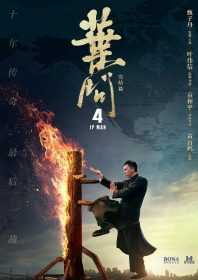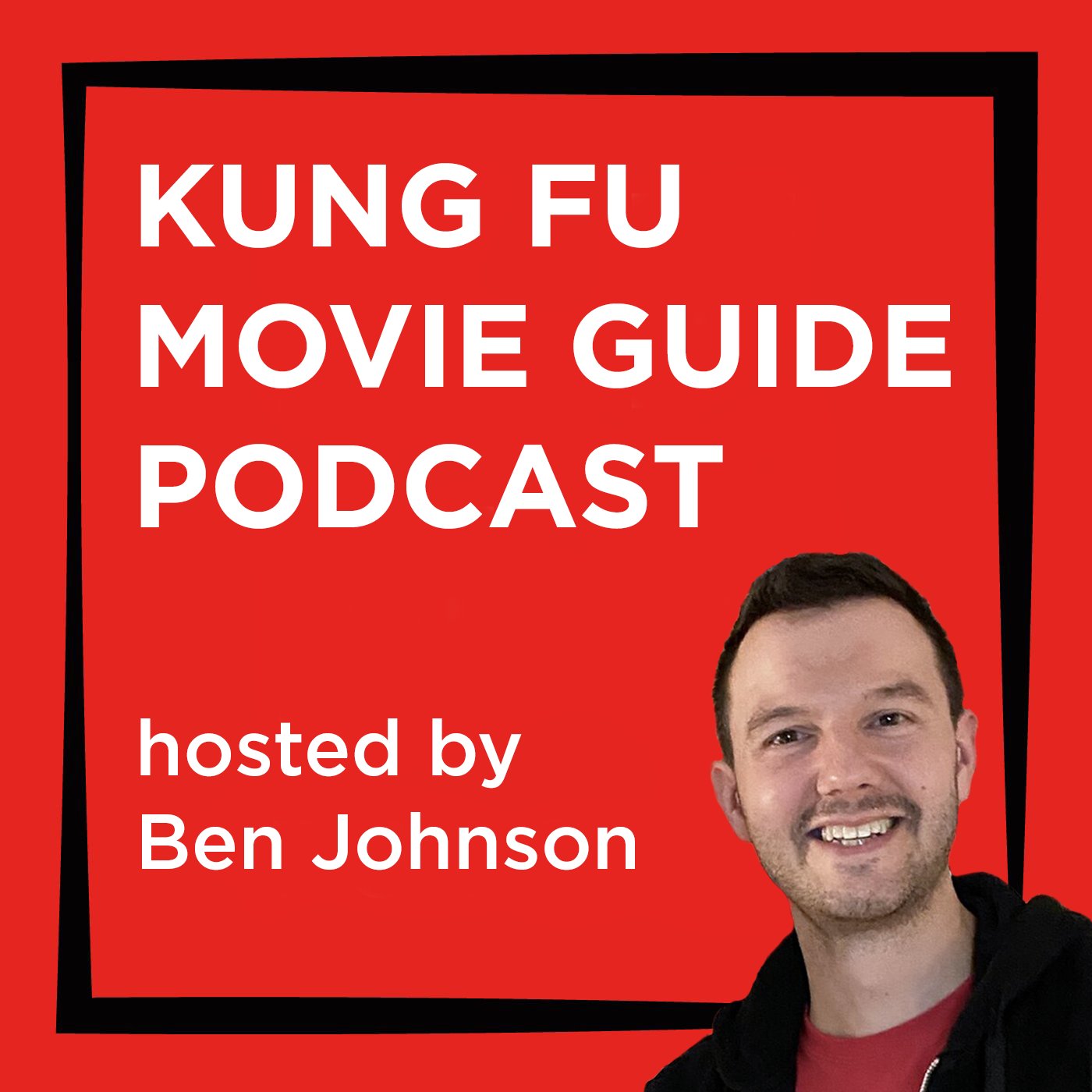
Despite claiming the third instalment would be his final outing as the Hong Kong Wing Chun teacher and Bruce Lee‘s sifu, Ip Man, there is a definite finality to Donnie Yen and Wilson Yip’s fourth instalment. The Ip Man series may have got more histrionic with every new sequel, but Donnie has remained excellent at the franchise’s stoic core, helping to anchor the turbulence around him. It is a role which may well define his career. The film version of Ip Man represents a beacon of controlled, virtuous, empathetic civility and understanding at a time when relations between Hong Kong, China and the west are at a critical point. His diplomacy, apolitical stance and good nature – plus his unique way of uniting cultures and class – may partly explain why the film has been so eagerly received in 2019. It’s probably the broadest of all the films so far with sudden shifts in tone; from a bouncy, cartoonish Bruce Lee homage complete with nunchakus and a Bob Wall-like adversary (played with great gusto by the UK’s Mark Strange), to scenes involving the old master confessing a cancer diagnosis to his only child. This imbalance of family drama and brash kung fu yarn may be partly down to its setting: it’s the first Ip Man film to transport the iconic figure from his domestic troubles and into a boiling pot of racial tension in a clean-cut vision of 1960s San Francisco. (It’s actually not San Francisco at all, but instead the north of England and China). As such, the film has a slightly wonky international feel which does away with subtlety and nuance in favour of mass appeal.
The now widowed Ip Man is invited to America at the behest of Bruce Lee (Danny Chan), who has been making waves in the west as a kung fu teacher and author, spreading the secrets of Chinese martial arts. As well as meeting up with his prized student, Ip Man is on a reconnaissance mission to find a good school for his wayward son, who undermines his authority and shows little of the same adulation he receives from both his pupils and peers both in Hong Kong and abroad. The openminded Ip Man remains agnostic to the neuroses exhibited by the kung fu elders in Chinatown, who believe Bruce needs to be silenced. (Although most of the film is a complete fabrication, there is some truth to this, evidenced by the real-life fight between Bruce Lee and the Chinese kung fu master, Wong Jack Man, in 1964, as depicted in the 2016 film, Birth of the Dragon). As with the Wong Fei-hung films of old, it is the actions of hotheaded youth which winds up getting the teachers into trouble. National pride eventually takes precedence over petty infighting when Bruce is shown to be facing trouble on both racial and stylistic grounds. Local US Marines who favour karate as a superior fighting style start to terrorise the Chinese immigrant community, while the daughter of Chinatown’s community leader (Wu Yue) is assaulted in a racially motivated attack. Then, one of Lee’s students (Van Ness Wu) – a Chinese-American Marine eager to broaden the scope of the military’s combat curriculum – faces resistance from the bigoted powers in charge, who pour scorn on Lee’s teachings and set fire to his wooden dummy. (In case you weren’t sure by this point, the US Marines are the bad guys).
Scott Adkins chews the scenery as a racist drill sergeant – channeling Gunnery Sergeant Hartman from Full Metal Jacket – but the film stops short of condemning the whole unit as riled-up racist nut-jobs, saving it only for the leaders at the helm. Ip Man eventually becomes embroiled in the escalating tensions in order to keep the peace between the two nations. Once threatened by western forces, the character of Bruce Lee is interestingly appropriated as a defender of Chinese morality, values and tradition, eager to step-up and protect the elders. It’s a subtle way of reassigning the Lee legend in the mould of a Chinese patriot. Whether accurate or not, at least the film takes measures to understand the motivations of Lee both as a student and a teacher, which is more than can be said by his crass caricaturing in the west at the hands of Quentin Tarantino in Once Upon a Time in Hollywood, released the same year.
Most importantly, those looking for an all-out, wild kung fu movie should feel well nourished, with Yuen Woo-ping stepping back into the franchise after his work on Ip Man 3 and its spin-off, the highly enjoyable if slightly bonkers Master Z: Ip Man Legacy. Wilson Yip does well to reign-in some of Woo-Ping’s more outlandish tendencies and, as such, provides a beautiful platform for him to showcase his vast combative knowledge. His choreography is exquisite throughout, with duels involving Wing Chun, karate, Tai Chi, traditional kung fu techniques, not to mention an unbridled tribute to Bruce Lee’s unique fighting style. The action set-pieces are such a joy to watch, and the film is as much a tribute to Woo-ping’s talents as it is Donnie’s. It’s certainly not a perfect film, but it is still a worthy and apt conclusion to a very important chapter in the ever-evolving story of kung fu cinema.
AKA: Ip Man 4; Yip Man 4.
- Country: China, Hong Kong
- Action Director: Yuen Woo-ping
- Directed by: Wilson Yip Wai-shun
- Starring: Chris Collins, Danny Chan Kwok-kwan, Donnie Yen Chi-tan, Karena Ng Chin-yu, Kent Cheng Jak-si, Mark Strange, Scott Adkins, Van Ness Wu, Wu Yue
- Produced by: Donnie Yen Chi-tan, Raymond Wong Bak-ming, Wilson Yip Wai-shun
- Written by: Chan Tai-lee, Edmond Wong Chi-mun, Jill Leung Lai-yin, Sam Chak-foon
- Studio: Mandarin Motion Pictures













Good write up. Thank you.